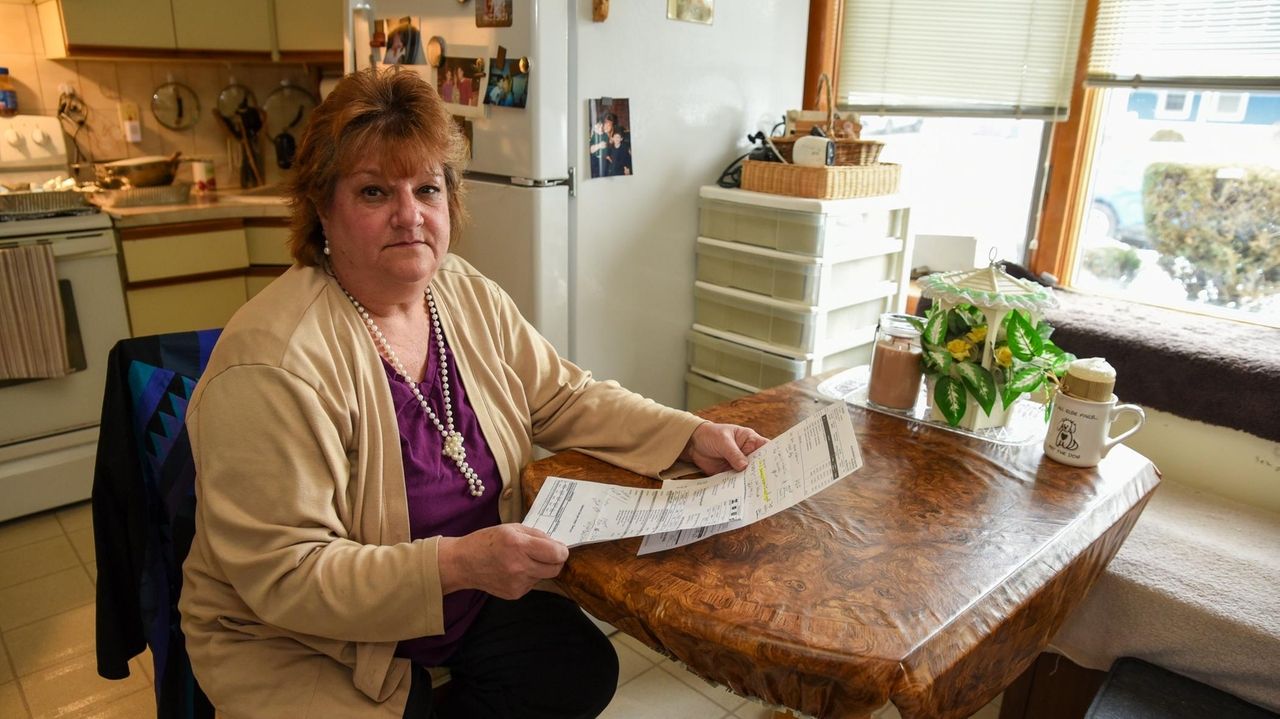Some doctors and hospitals are refusing to treat many Medicare and Medicaid patients via telehealth, or charging them hefty fees, because the federal government shutdown is preventing reimbursement of video and audio health services.
“Medicare and Medicaid patients are unable to schedule new telehealth/video visits,” NYU Langone, which operates two hospitals on Long Island along with outpatient practices, states on its website. NYU Langone said previously scheduled appointments will be honored.
Other health systems declined to say what their policies are.
Limiting access to telehealth could lead to more serious complications for patients, and hospitalizations, said Dr. David Jakubowicz, president of the Medical Society of the State of New York, which represents physicians statewide.
WHAT NEWSDAY FOUNDSome doctors and hospitals are refusing to treat many Medicare and Medicaid patients via telehealth, or is charging them large fees, because the federal government shutdown is preventing reimbursement of such services.A rule adopted during the early part of COVID-19 pandemic greatly expanded telehealth coverage, but the rule was not extended by Oct. 1, when the current shutdown began.Certain types of Medicare and Medicaid plans continue to offer telehealth coverage, but health care providers risk not getting reimbursed if they have a telehealth appointment under a non-covered plan.
“It’s another barrier to care,” he said.
Some doctors are canceling telehealth appointments or charging patients, depending on what type of Medicare or Medicaid plan they have, Jakubowicz said.
“If a physician is not sure they’re going to get paid for something or paid promptly for it, they may not elect to do those services,” he said. “In order to pay your employees, you need a certain amount of revenue coming in.”
At issue is a rule adopted during the early part of the COVID-19 pandemic that greatly broadened Medicare and Medicaid coverage for telehealth, beyond what had been limited primarily to rural areas. The rule was routinely extended, but the latest version expired as of Oct. 1, the day the current shutdown began. Mental and behavioral health telehealth services can still be reimbursed.
Yet medical reimbursement continues for some insurance plans, said Wendy Darwell, president and CEO of the Suburban Hospital Alliance of New York State, which represents hospitals on Long Island and in the Hudson Valley.
About half of Medicare enrollees have insurance coverage via private companies, and many of those plans continue to cover telehealth, she said.
But the Centers for Medicare & Medicaid Services said it is placing a “temporary hold” on telehealth claims for those with traditional Medicare and certain types of privately run Medicare Advantage plans, and it’s unclear whether the government will eventually pay providers, Darwell said.
“If you continue providing services, obviously you’re at risk those services may never be reimbursed,” she said.
Doctors’ offices are sometimes unsure which patients they’ll be reimbursed for seeing, said Jakubowicz, director of otolaryngology and allergy at Bronx-based Essen Health Care, where most patients have Medicaid, which is through private companies.
“The insurance companies are not giving us the guidance,” he said. “The doctors need to call” insurance companies.
Some physicians are providing telehealth even if they don’t know if they’ll be reimbursed, he said.
Ilene Corina, of Wantagh, is a caregiver for her brother, who has cerebral palsy as well as about 10 medical conditions. Two of his doctors said they would no longer cover telehealth — but when she called his Medicaid insurance company, the firm said it would pay for it, said Corina, president of the Pulse Center for Patient Safety, a Long Island-based patient advocacy group.
Her brother has only 50% lung capacity, and “it would be very dangerous” if he were to contract COVID-19, the flu or another infection while sitting in a waiting room instead of accessing care via telehealth. She said she plans to go back to the doctors to tell them what the insurance company said.
NYU Langone declined to elaborate on its website statement, including on whether the system would accept appointments from people whose insurance plans cover telehealth.
Northwell Health, the Island’s largest health care provider, declined to comment beyond stating, “We are still assessing the impacts.”
Stony Brook Medicine said, “Telehealth has expanded access and supported countless families, and we strongly advocate for its swift restoration. In the meantime, our teams remain dedicated to providing seamless, high-quality care through in-person visits and community-based health care settings.”
Catholic Health did not respond to requests for comments.
David Olson covers health care. He has worked at Newsday since 2015 and previously covered immigration, multicultural issues and religion at The Press-Enterprise in Southern California.

